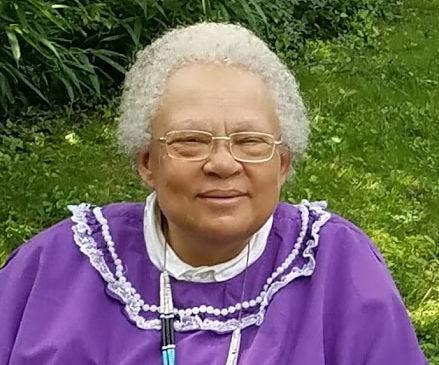
Ask Carolivia Herron her family history and the stories she shares are epic. Some go back four or more generations and feature narrow escapes, kidnapping by pirates, a rescue by Marines in Tripoli and finally settling off the coast of Georgia with the Geechee people.
Herron, a life-long Washingtonian, is an acclaimed author — her 1997 children’s book “Nappy Hair” prompted both praise and protests — professor of classics, Afro-Judaica scholar and activist. She also hosts her own home-grown hyperlocal radio interview show, Epic City, heard on Tuesdays on WOWD 94.3 in Takoma Park.
Growing up in the Black Baptist church, Herron, 74, was a precocious child and read the Bible by the time she was 5 or 6. She didn’t know about Jews or Judaism — her neighbors in Mayfair Mansions in northeast Washington were like her own parents, middle-class African Americans.
“I didn’t know I had Jewish roots,” she said. “I just felt Jewish. From the time I read the Bible and sitting beside my mother in church and listening to stories … I felt connected to Moses. I don’t know that I knew the word Judaism at the time, but I knew I belonged to Moses.”
When she was 9, Carolivia asked her great-grandmother, Olivia Smith, then 103 years old, what it was like to have been enslaved. Her grandmother scoffed. “She told me that we were never slaves in the United States. She said, ‘We had been slaves back in Egypt several thousand years ago.’ She told me about [family ancestors] in Spain, Portugal and Italy … that her great-grandmother told her a story about Sarah, who was kidnapped by Barbary pirates and taken to Libya, but she called it Tripoli … where she found refuge with the Jewish community there.”
Ultimately, this ancestor Sarah made it to the Georgia Sea Islands and lived among the Geechee people. Her children married Geechee children.
Herron said that it took decades before “I felt so compelled to dig into Jewish roots, before I knew the whole story.” Some of these autobiographical tales informed her published books, including her 1991 debut novel, “Thereafter Johnnie,” and her children’s book, “Always an Olivia,” her 2007 multicultural family history, from the Spanish Inquisition to the slave trade to the present.
Yet it took decades for Herron to formally join the Jewish people. She didn’t study for conversion until her 40s, while teaching at Harvard University. Later she celebrated her adult bat mitzvah at Harvard Hillel.
Inspired by her doctoral dissertation studies, Herron wants to give voice to one of the unheralded women of the Old Testament — Asenath, the wife of Joseph.
“The story of Asenath is told from two perspectives,” Herron explained. “One from the ancient Egyptian perspective, the other is the perspective of a Ph.D. student at the University of Pennsylvania, who can’t get her dissertation done. She falls asleep two days before it’s due and all her favorite poets come through space and time and finish it for her.”
Her largest project yet, “Asenath and Our Song of Songs,” to be published by Random House later this year, will be both a traditional novel and a multimedia book.
Herron described the reading process thus: “There are three ways of reading it: converging, meandering and diverging. Converging means reading it as a normal book: from the beginning, to the middle to the end. Meandering is when you read it and get to the point where there is something from Dante, for example. So, the reader can click and read the Inferno … and then come back. Diverging is when [the reader] comes across something they really, really like and go off to read that … and never come back.”
As a longtime member of Tifereth Israel Congregation, Herron plays an active role in the synagogue’s social action committee; she serves as a judge of children’s picture books for the Jewish Book Council and contributes regularly to Lilith, the Jewish feminist magazine. She also teaches classics at Howard University.
“As a Black person, I’m used to people hating me because I’m Black in the world. I’ve gotten used to that. I’m not used to being oppressed for being Jewish,” she said. “When I talk to people [at my synagogue] and I tell them I feel like sometimes it’s like 1939 in Germany, and I’m debating whether to leave Germany … they think I’m some kind of a radical maniac. But this is serious. Pay attention.”
You can find Carolivia Herron’s Epic City radio show at takomaradio.org.






An interesting article about a remarkable Jew.
“Inspired by her doctoral dissertation studies, Herron wants to give voice to one of the unheralded women of the Old Testament — Asenath, the wife of Joseph.”
Instead of “Old Testament”, a Christian work, “Hebrew Bible” or “Tanach,” would be a better choice.